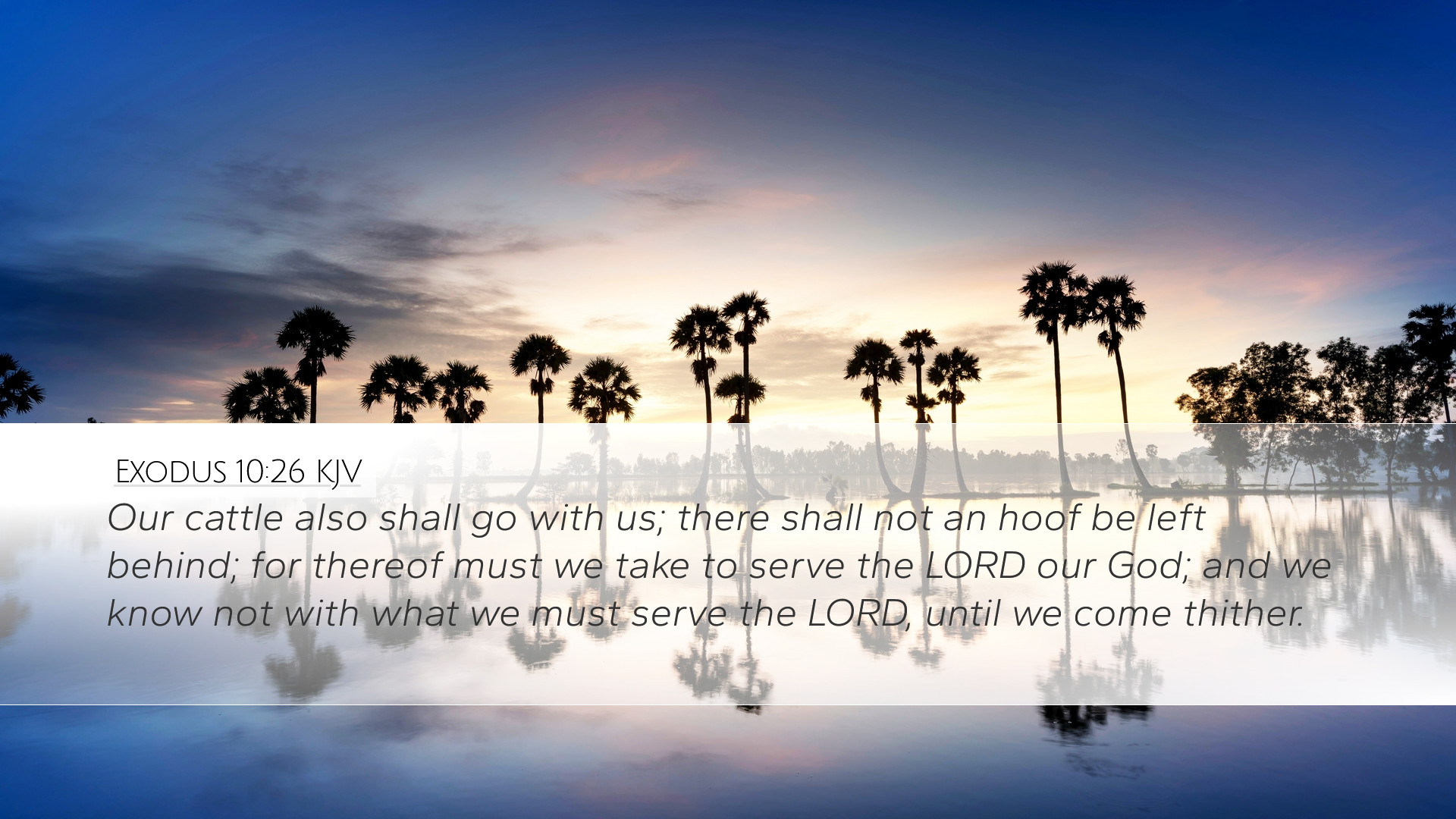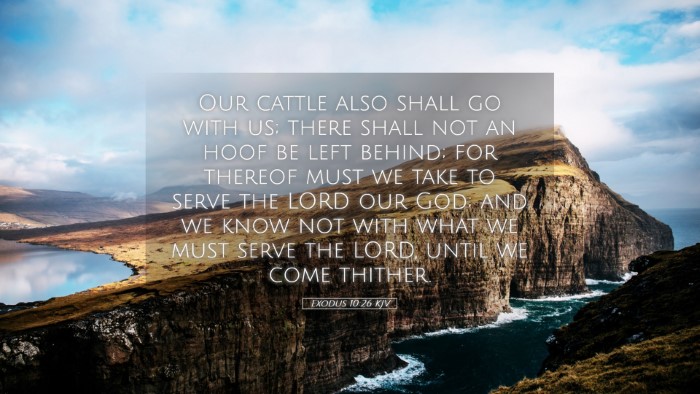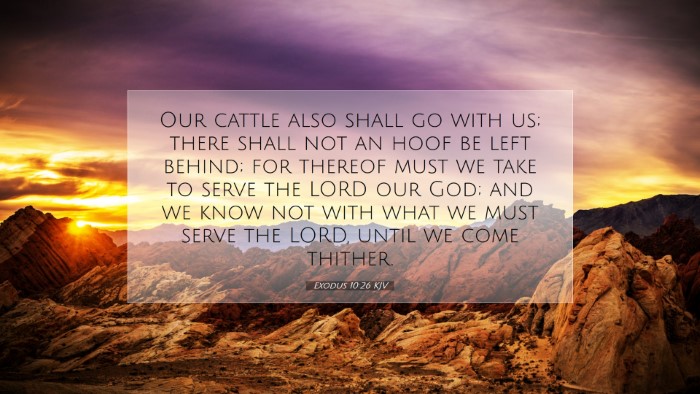Exodus 10:26 - Biblical Commentary
Verse: "Our cattle also shall go with us; there shall not an hoof be left behind: for thereof must we take to serve the LORD our God; and we know not with what we must serve the LORD, until we come thither."
Contextual Overview
Exodus 10:26 occurs within the narrative of Moses confronting Pharaoh during the tenth plague, leading to the Israelites' liberation from Egyptian bondage. This verse emphasizes the importance of taking all their possessions, particularly livestock, to ensure their service and worship to God can be fulfilled in the wilderness. The refusal to leave even a hoof behind underscores the seriousness and completeness of their commitment.
Theological Insights
- Divine Worship and Service: The insistence on taking every hoof suggests a total dedication to God's service. Moses understood that without these animals, they could not render the sacrifices God required.
- Covenantal Faithfulness: The act of taking all livestock represents the faithfulness of God’s covenant with His people. It is a declaration of reliance on God’s provision for worship.
- Importance of Obedience: The declaration that not a hoof would be left behind highlights obedience to God’s commands, reinforcing the call for complete adherence to His directives.
Commentary Insights by Notable Scholars
Matthew Henry
Matthew Henry emphasizes that this command reflects the importance of the Israelites’ livestock in their forthcoming worship. He asserts that these animals were not only valuable for material needs but essential for the sacrificial system ordained by God. Henry points out that Moses' determination to take every hoof illustrates the seriousness of worship and the necessity of total commitment to God's instructions.
Albert Barnes
Albert Barnes notes the strategic significance of livestock in the sacrificial worship of the Israelites. He highlights that the phrase "there shall not an hoof be left behind" speaks to the desire to ensure that everything necessary for worship was accounted for. Barnes stresses that true service to God encompasses all aspects of life, including material possessions, which must be dedicated to Him.
Adam Clarke
Adam Clarke focuses on the practicality and implications of taking the livestock. He argues that by stating their need for the animals to serve God, Moses is asserting that every part of their identity as a people depended on their relationship with God. Clarke suggests that this moment foreshadows the greater mission ahead, where complete devotion would be necessary for Israel's future as God’s chosen people.
Practical Applications for Today
The significance of Exodus 10:26 calls the contemporary reader, including pastors, students, and theologians, to consider what it means to serve God fully in their lives. Here are several applications:
- Comprehensive Commitment: Just as Moses insisted on taking not just some, but all of their livestock, believers today are called to a holistic commitment to God that encompasses every facet of their lives.
- Value of God's Provision: Recognizing that all resources, talents, and gifts are from God can foster a spirit of gratitude and stewardship among believers.
- Preparation for Worship: Understanding that true worship requires preparation and the right resources can enhance the believer's engagement in corporate worship and personal devotion.
- Embrace of Covenant Identity: Believers are reminded of their identity as part of God's covenant community, urging them to cherish and protect what is essential for their spiritual lives.
Conclusion
Exodus 10:26 serves as a crucial reminder for believers: our worship and service to God must be complete and encompassing. Just as Moses ensured that every hoof was accounted for, modern-day believers are called to engage fully with all that God has entrusted to them, underscoring the importance of total devotion in their relationship with God.


